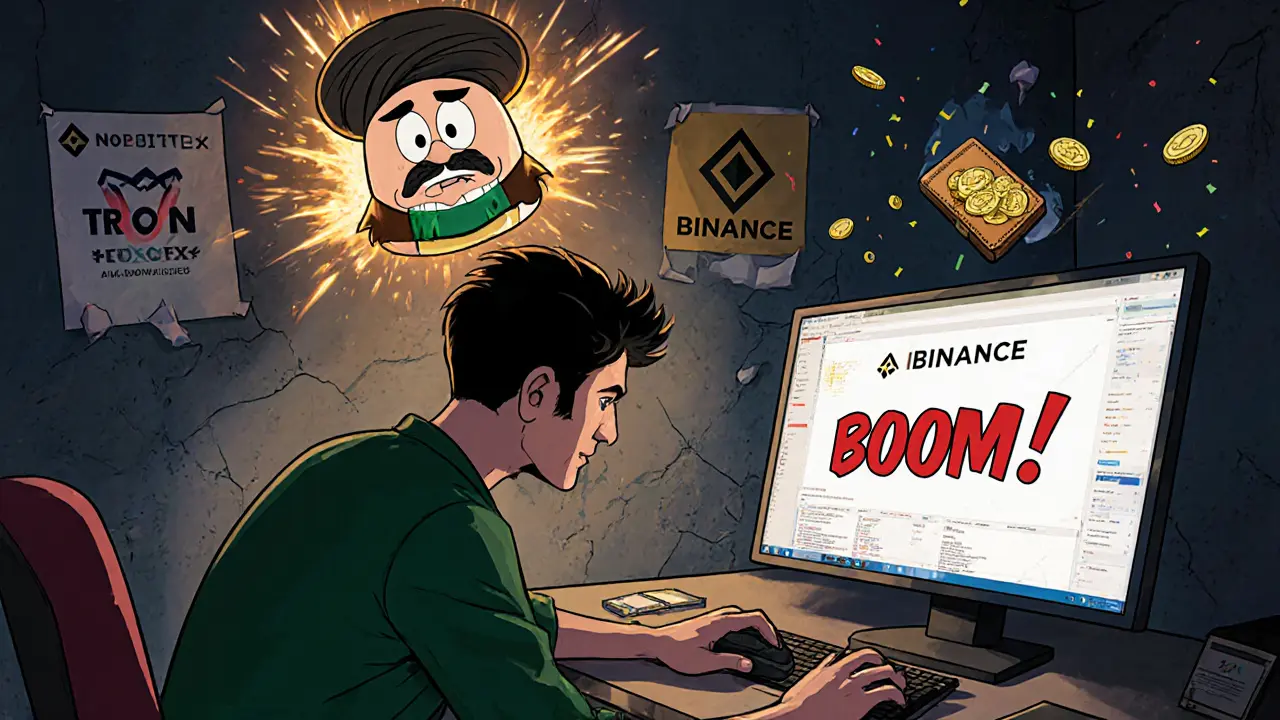Binance Iran VPN: How to Access Binance in Iran with a VPN
When you try to log into Binance, the world’s largest cryptocurrency exchange by volume, used by millions to trade Bitcoin, Ethereum, and hundreds of other coins. Also known as Binance.com, it’s a go-to platform for traders who want low fees and deep liquidity. But if you’re in Iran, you’ll likely hit a wall. Binance blocks access from Iran due to international sanctions, making it impossible to sign up or log in without a workaround. That’s where a VPN, a virtual private network that hides your real location and routes your traffic through another country. Also known as virtual private network, it’s the tool most Iranians use to bypass geo-restrictions on crypto platforms. But using a VPN for Binance isn’t just about tech—it’s about risk, reliability, and real consequences.
Not all VPNs work the same. Some get flagged by Binance’s security systems and get blocked within minutes. Others slow your connection so much that trading becomes impossible. And worse—some free VPNs log your data, sell it, or even steal your crypto keys. You need a paid, no-logs VPN with servers in countries where Binance is fully operational, like the U.S., Germany, or Singapore. But even then, Binance may still ask for ID verification. And if your ID shows an Iranian address, your account gets suspended. That’s why many Iranians use a friend’s or relative’s foreign ID to complete KYC—though that carries its own legal and financial risk. The truth? Binance doesn’t officially support Iranian users. Any access you get is through a gray zone. And if Binance shuts down your account, you lose everything. There’s no customer support for banned regions. No appeals. No refunds.
That’s why people in Iran are turning to alternatives. Exchanges like MEXC, a global crypto exchange that still allows Iranian users without strict KYC. Also known as MEXC Global, it’s one of the few platforms that don’t block Iranian IPs, or Bybit, a derivatives-focused exchange with weaker geo-blocking than Binance. Also known as Bybit Exchange, it’s popular for futures trading in regions with restrictions. Some use peer-to-peer platforms like LocalBitcoins or Paxful to buy Bitcoin with Iranian rials, then move it to a self-custody wallet. Others use decentralized exchanges like Uniswap or PancakeSwap, where no one asks where you live. But these come with their own problems—lower liquidity, higher slippage, and no fiat on-ramps. The bottom line? There’s no perfect solution. Only trade-offs. And the people who succeed aren’t the ones with the best VPN. They’re the ones who understand the risks, avoid scams, and know when to walk away.
Below, you’ll find real reviews and breakdowns of exchanges that still work in Iran, VPNs that actually deliver, and crypto projects that don’t vanish when the market turns. No fluff. No hype. Just what you need to stay safe and in control.

VPN Usage for Crypto in Iran: Detection Risks for Traders
Iranian crypto traders rely on VPNs to bypass sanctions, but detection has become far more sophisticated in 2025. Learn how exchanges track users, why free VPNs are dangerous, and what’s really happening behind the scenes.